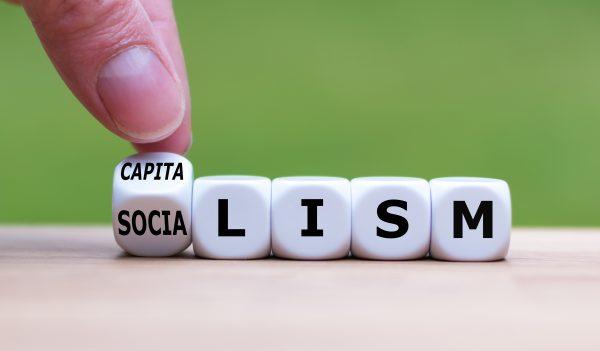
By Stephen Day
Socialism. It’s that dirty word we say in hushed tones and dark corners but what most people fail to realize is that the United States is already heavily invested in socialism.
The roads we drive on, public K-12 education, county hospitals, the U.S. military, MediCare/MediCal and Community Colleges are all examples of socialism within our society.
If you have a social security card, then you are in fact, a card carrying socialist.
Socialism and communism are often used interchangeably, especially by people who want to vilify the idea.
Communism often leaves a bad taste in the mouth of Boomers and Gen X’rs who lived through the Cold War of the 1980’s and endured non-stop anti-communist propaganda.
At the most basic level socialism is more of an economic structure and communism is a political ideology that includes economic structures.
No country has ever achieved a pure communistic or socialistic government, mostly because every country has to also interact with the global community in order to survive.
Socialism says that the means of production and distribution are owned by the community and managed through a democratically elected government.
Essentials of life, like food, housing, health care and education would be available to all without cost.
What is a government’s job if not to care for the needs of all of their citizenry?
Unlike what you’ll hear on Fox News, socialism does not mean the end of private property. Innovation and individual effort are encouraged, and benefit all.
Imagine the possibilities if everyone, regardless of class or color, had the opportunity to pursue their passions and talents, free of the burden of trying to survive in an economy that is rigged to make them fail.
Imagine the potential scientific discoveries we are losing out on, because the next Einstein has to drop out of middle school to help their parents work in a field, in order to ensure they have food to eat.
Opponents of socialism like to use the example of a janitor and a doctor making the same amount of money, and how egregious that would be.
Socialism doesn’t work that way though.
Each profession has demanding workloads and while a doctor obviously requires far more education and carries a higher level of responsibility, both the doctor and the janitor provide a valued and needed service to the community.
Currently, getting the education required to become a doctor can cost hundreds of thousands of dollars and therefore, doctor’s salaries are much higher than a janitor that doesn’t have to spend that time and money getting educated.
What if that was not the case?
What if the education to become a doctor was provided freely to those who showed an aptitude for medicine?
What if you could chase your passion for medicine, without having to figure out how to pay for it, and without worrying about how your family will survive without you working?
The kid who has to drop out of school to become a janitor to help his family survive, if given the opportunity, may realize that they have the talent and ability to be a great doctor. Rather than the kid with the rich parents, who is funneled through medical school on the back of money and favors, who would probably better serve his patients better by cleaning up after them, than trying to practice medicine on them.
Creating a society where each member is valued, and their potential and talent are nourished and encouraged, allows innovation to come from many different directions. Success becomes a natural by-product.
We have to fix the current culture of competition that capitalism foments.
We must establish limits on the amount of wealth that can be amassed and hoarded by a single person.
That wealth should be redistributed to properly run programs that ensure that all people have guaranteed housing, healthy food, accessible, adequate medical care and enough education to pursue their dreams.
Then, and only then, can we create a society where the focus is on thriving, not merely surviving.





